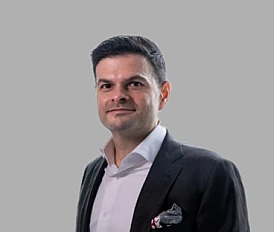Harry Wood | 25 November 2024
In Conversation ... with Pallak Seth

Harry Wood | 25 November 2024

Pallak Seth, founder and executive vice chairman of PDS Multinational Group, has carved a prominent path in the fashion sourcing world, aligning business strategies with sustainable practices. At the head of PDS, Seth’s insights into the fashion industry reveal a commitment to innovation and a keen awareness of the rapidly shifting landscape of global sourcing.
The fashion sourcing landscape has evolved dramatically, primarily due to the increasing emphasis on sustainability and ethical sourcing. Seth told Bangladesh Beyond the Label: “Not only are governments globally pushing for changes in regulation, but we’re also seeing consumers demand higher standards from the brands they buy.”
This shift is reshaping practices to as fashion brands prioritise transparency and responsibility. At PDS, the company’s approach to ensuring ethical practices relies on a rigorous vetting process, involving third-party and internal audits, as well as partnerships with organisations like Amfori, Smeta, and Fair Labour to keep standards consistent.
One of the biggest challenges fashion brands face, Seth explains, involves the complexity of managing an interconnected supply chain amid fluctuating raw material prices, trade regulations, and geopolitical shifts. PDS tackles these challenges by assisting brands in optimising sourcing strategies that balance cost, quality, and sustainability. “Our platform supports our customers and supply chain partners,” says Seth, “by working together to optimise their sourcing strategies and support their working capital needs.”
Seth tells us agility in addressing frequent supply chain disruptions, noting the importance of cultivating long-term relationships with suppliers. “When it comes to reliability, we focus on choosing the right business partners. A strategic relationship is required to build long-term, mutually trusting connections, where we can work together hand in hand,” he says.
Digital innovation is a key component in PDS’s model, enhancing efficiency and transparency across the supply chain. Technologies like AI, “enable better decision-making in the fashion supply chain.” Through tools like WEAVE, a cloud-based platform integrated with SAP, PDS manages invoices, shipments, and payments in real time. Other digital tools, such as 3D design technologies, have also reduced waste and sped up product development.
PDS’s focus on sustainable sourcing saw the company commit US$50m to venture fund, PDS Ventures, which backs start-ups that focus on transparency and responsible sourcing. “Our aim is to bring as many start-ups to commercial scale as possible, creating synergy with our customers,” says Seth.
Addressing the industry wide push for customisation and agility, Seth highlights PDS’s multi-pronged strategy to meet demand for smaller, more responsive production runs. The business uses a network of manufacturers specialised in rapid production and using digital tools for faster prototyping, and aims to cater to brands seeking flexibility without compromising on sustainability.
Seth believes that speed and sustainability in fashion can coexist, albeit with careful strategy and innovation. Seth adds: “Brands are starting to realize that 3D development tools can enable a much smoother and faster sampling process, especially on core lines.”
In an ever-changing landscape, Seth’s vision for PDS Multinational Group is a forward-thinking approach that emphasises ethical practices, strategic partnerships, and technological innovation as key to modern fashion sourcing.